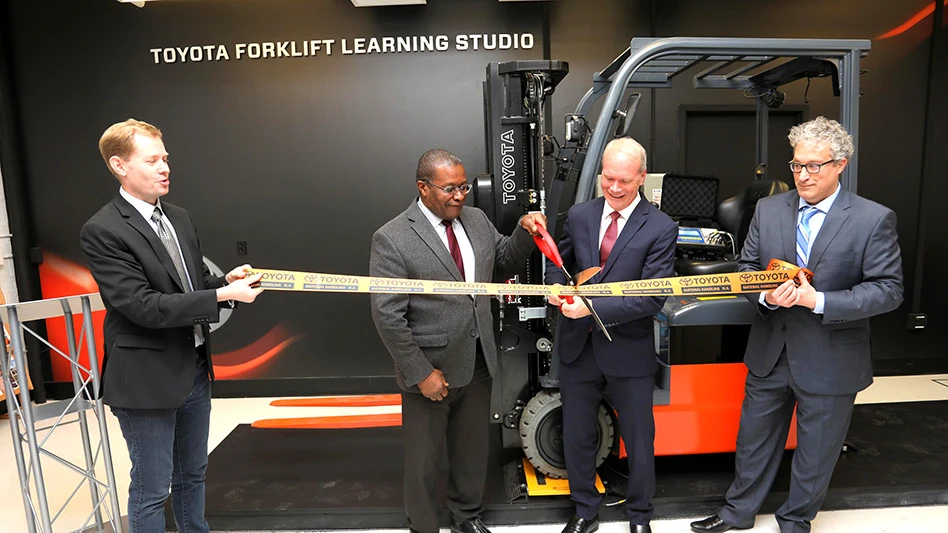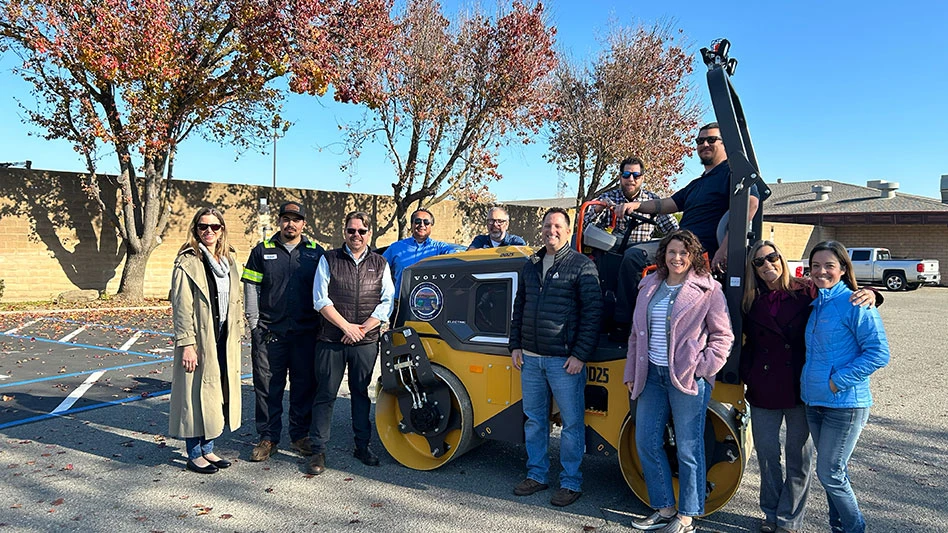
Photo courtesy of Toyota Material Handling
Toyota Material Handling (TMH), a Columbus, Indiana-based manufacturer of forklifts and material handling solutions, joined representatives from Cornell University’s College of Engineering to dedicate the Toyota Forklift Learning Studio at Cornell University’s Sibley School of Mechanical and Aerospace Engineering.
TMH says the facility is the world’s first forklift learning studio and the result of a partnership between the manufacturer and the Ithaca, New York, university, providing students a venue for real-world application in an immersive learning experience that could become a model for change in higher education.
“At Toyota, we believe making things is about making people, and this learning studio is a great example of that guiding principle,” TMH North America President and CEO Brett Wood says.
RELATED: Toyota updates electric forklift | Volvo CE, Alta partner in support of trade school
The learning studio is equipped with industry-leading products, components and technology that will bridge the gap between students’ coursework and actual commercial products. The forklifts will help students learn about mechanical properties and how they integrate into a larger system while exposing them to engineering principles such as fluid mechanics, heat transfer, hydraulics, engines, transmissions and motors.
“I became passionate about this when it became clear to me that students were motivated by seeing how what they learned in class applied to their everyday life and to their career opportunities, and they didn’t want to wait very long to get to that point,” says Brian Kirby, associate director of undergraduate affairs for Cornell’s Sibley School of Mechanical and Aerospace Engineering.
Kirby says the Toyota Forklift Learning Studio will be the site of seven to 12 different classes, with students going back and forth between the studio and other parts of the curriculum.
“We want students to interact with the studio constantly, and we want to influence a larger number of students,” Kirby says. “Unlike a single class, which can only affect 10-100 students, this space will impact hundreds and hundreds of students and allow them to see the links between what they’re doing and what they can actually become. I believe students will see the Toyota Forklift Learning Studio as a fun and exciting place that motivates them to put their energy and passion into studying the foundational material we’re teaching—a place where the coolest things happen on campus.”
The Toyota Forklift Learning Studio challenges the traditional educational paradigm of classroom-based learning and provides students with an answer to the age-old question, “When will I ever use this in the real world?”
“The cool thing about the studio is seeing how everything you’ve learned in separate classes can be integrated into one thing,” says Cornell University sophomore Emma Sudmann, who was selected to help build the studio last summer. “It can be hard to see how everything you learn in your statistics class compares to your fluid mechanics class, for example. But with the forklift, you can see how all of those topics come together and how they are used in the real world.”
In addition to modernizing the way students learn, the partnership will expose them to new products and industries where they could build successful careers. The forklift industry is an essential part of the nation’s supply chain, and it is coming off the two best years in history—with a combined 663,000 units sold in North America in 2021 and 2022. The industry contributes more than $26 billion to the United States’ annual GDP and offers wide-ranging opportunities for engineers.
Latest from Construction & Demolition Recycling
- IDTechEx sees electric-powered construction equipment growth
- Global steel output recedes in November
- Canton, Ohio, nonprofit helps divert building materials for reuse
- Ferrous market ends 2024 in familiar rut
- NDA to offer certification test at convention
- Hyster-Yale commits to US production
- World Cement Association highlights challenges facing long-term cement demand
- Tata Steel to supply equipment maker JCB





